Latest News
06 December 2018
New climate response model calculates impact of road traffic fast

Vanessa Rieger created a model which assesses impact of road traffic emission scenarios on O3 and CH4 concentration and the subsequent climate effect.
05 December 2018
Researchers discover mechanism disrupting CRISPR-Cas9 gene editing
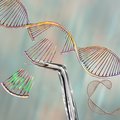
The discovery of CRISPR-Cas9 has made gene editing very easy. Unfortunately, the molecular tool has recently been found to be less precise than previously assumed. It can lead to unwanted mutations in a cell’s DNA. Researchers at Delft University of Technology have now identified a mechanism that causes such mutations when CRISPR-Cas9 is used incorrectly. This can cause dormant genes to become expressed, which is potentially very dangerous. The researchers have created a checklist based on their findings. Using this checklist will prevent the harmful mechanism from being activated and makes gene editing using CRISPR-Cas9 safer.
05 December 2018
New Professor of Nanomechanics aims for ‘nanoscale floating’
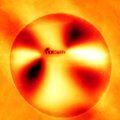
In the words of Professor Peter Steeneken, Head of the Dynamics of Micro and Nanosystems section at TU Delft, nanoengineering is required to bridge the gap between nanoscience and concrete nanomechanical applications.
04 December 2018
ERC Consolidator grant for Chirlmin Joo and Pouyan Boukany
30 November 2018
Opening HollandPTC

On Friday 30 November, the festive opening celebration of HollandPTC will take place in the Prinsenhof museum in Delft. Recently patients are being treated with proton therapy, a new form of radiotherapy against cancer for the Netherlands, in the outpatient centre HollandPTC located on the campus of the TU Delft. Parallel to these treatments, TU Delft is working together in HollandPTC with the LUMC and Erasmus MC medical centres on innovations in the care of cancer patients. Treatment, education and research go hand in hand to achieve better and responsible care.
30 November 2018
Probing quantum physics on a macroscopic scale
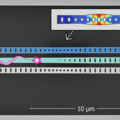
Why does quantum mechanics work so well for microscopic objects, yet macroscopic objects are described by ‘classical physics’? This question has bothered physicists since the development of quantum theory more than a 100 years ago. Researchers of Delft University of Technology and the University of Vienna have now devised a macroscopic system that exhibits entanglement between mechanical phonons and optical photons. They tested the entanglement using a Bell test, one of the most convincing and important tests to show a system behaves non-classically.
29 November 2018
Passionate about science communication? We’re looking for FameLab candidates!
If you think you can explain a scientific concept, on stage, to a general audience in just 3 minutes - or if you want to learn how to do this! - , then register for the TU Delft FameLab heat.
23 November 2018
Karel Luyben appointed Chairman European Open Science Cloud
On 23 November former Rector Magnificus Karel Luyben was appointed chairman of the Executive Board of EOSC (European Open Science Cloud) in the presence of the Austrian Minister for Education and Science Heinz Fassman and representatives of the European Commission.
23 November 2018
TU Delft researchers visit Great Barrier Reef to rehabilitate coral
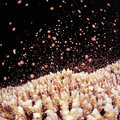
This week a team of researchers from TU Delft, Van Oord and Australia’s national science agency CSIRO are travelling to the Great Barrier Reef off the coast of Australia to test a new method for the large-scale rehabilitation of coral.
22 November 2018
Robotic support improves rehabilitation
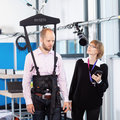
We are living longer and longer these days. And the older we get, the higher the chance of becoming afflicted with an age-related disease, such as stroke. As many as three million people have a stroke every year in Europe. There is a high probability (40%) that many of those who survive will not be able to walk by themselves, unassisted, after three weeks. At which point they will need rehabilitation. But if an increasing number of elderly people want to rehabilitate, then that’s going to put more and more pressure on therapists. Or will it? Probably not, according to Heike Vallery, professor of human motor augmentation at Delft University of Technology. She invented a robotic support system - the RYSEN™. - with a Swiss-Dutch consortium that is 3 metres wide and 10 metres long, which is fastened to the ceiling. RYSEN™ will be launched today by Motek.
